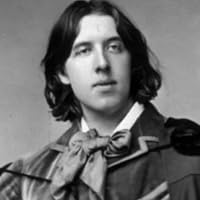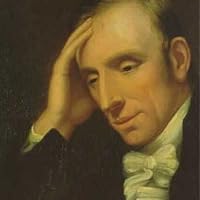Preface Quotes
Quotes tagged as "preface"
Showing 1-30 of 52

“So long as there shall exist, by reason of law and custom, a social condemnation which, in the midst of civilization, artificially creates a hell on earth, and complicates with human fatality a destiny that is divine; so long as the three problems of the century - the degradation of man by the exploitation of his labour, the ruin of women by starvation and the atrophy of childhood by physical and spiritual night are not solved; so long as, in certain regions, social asphyxia shall be possible; in other words and from a still broader point of view, so long as ignorance and misery remain on earth, there should be a need for books such as this.”
― Les Misérables
― Les Misérables

“Persons attempting to find a motive in this narrative will be prosecuted; persons attempting to find a moral in it will be banished; persons attempting to find a plot in it will be shot.
BY ORDER OF THE AUTHOR
per
G.G., CHIEF OF ORDNANCE”
― The Adventures of Huckleberry Finn
BY ORDER OF THE AUTHOR
per
G.G., CHIEF OF ORDNANCE”
― The Adventures of Huckleberry Finn

“So long as there shall exist, by reason of law and custom, a social condemnation, which, in the face of civilisation, artificially creates hells on earth, and complicates a destiny that is divine, with human fatality; so long as the three problems of the age — the degradation of man by poverty, the ruin of woman by starvation, and the dwarfing of childhood by physical and spiritual night — are not solved; so long as, in certain regions, social asphyxia shall be possible; in other words, and from a yet more extended point of view, so long as ignorance and misery remain on earth, books like this cannot be useless.”
― Les Misérables
― Les Misérables

“Everything can happen, everything is possible and probable. Time and place do not exist; on an insignificant basis of reality the imagination spins, weaving new patterns; a mixture of memories, experiences, free fancies, incongruities and improvisations.”
― A Dream Play
― A Dream Play

“The truth sticks in our throats with all the sauces it is served with: it will never go down until we take it without any sauce at all.”
― Saint Joan
― Saint Joan

“Death, like fiction, is brutal in its symmetry. Take this story and strip it down -all the way back- until you are left with two points. Two dots on a vast, blank canvas, separeted by a sea of white. Here, we have come to the first point, where the batj is drawn and the hand is reachinh for the razor blade. I will meet you at the next, by the axle of a screaming wheel, the revolution of a clock, the closing of an orbit.”
― Sad Girls
― Sad Girls

“No one can say 'He jests at scars who never felt a wound' for I have never for one moment been in a state of mind to which even the imagination of serious pain was less than intolerable. If any man is safe from the danger of under-estimating this adversary, I am that man.”
― The Problem of Pain
― The Problem of Pain

“Fortunate, most fortunate occurrence! — fortunate for the millions of his manacled brethren, yet panting for deliverance from their awful thralldom! — fortunate for the cause of negro emancipation, and of universal liberty! — fortunate for the land of his birth, which he has already done so much to save and bless! — fortunate for a large circle of friends and acquaintances, whose sympathy and affection he has strongly secured by the many sufferings he has endured, by his virtuous traits of character, by his ever-abiding remembrance of those who are in bonds, as being bound with them! — fortunate for the multitudes, in various parts of our republic, whose minds he has enlightened on the subject of slavery, and who have been melted to tears by his pathos, or roused to virtuous indignation by his stirring eloquence against the enslavers of men! — fortunate for himself, as it at once brought him into the field of public usefulness, "gave the world assurance of a MAN," quickened the slumbering energies of his soul, and consecrated him to the great work of breaking the rod of the oppressor, and letting the oppressed go free!”
― Narrative of the Life of Frederick Douglass
― Narrative of the Life of Frederick Douglass

“This volume is dedicated to time.
It gives us memories, fine wine, and wrinkles.
But the only thing worse than getting old is not getting old.
So here's to time, dear reader, yours and mine.
May you have many more wrinkles, a lot of fine wine,
and memories to last two lifetimes.”
― Airtight Willie & Me
It gives us memories, fine wine, and wrinkles.
But the only thing worse than getting old is not getting old.
So here's to time, dear reader, yours and mine.
May you have many more wrinkles, a lot of fine wine,
and memories to last two lifetimes.”
― Airtight Willie & Me

“The artist is the creator of beautiful things.
To reveal art and conceal the artist is art’s aim.
The critic is he who can translate into another
manner or a new material his impression of
beautiful things.
The highest as the lowest form of criticism
is a mode of autobiography.
Those who find ugly meanings in beautiful
things are corrupt without being charming.
This is a fault.
Those who find beautiful meanings
in beautiful things are the cultivated.
For these there is hope.
They are the elect to whom beautiful things mean only Beauty.
There is no such thing as a moral or an immoral book.
Books are well written, or badly written.
That is all.
The nineteenth century dislike of
Realism is the rage of Caliban
seeing his own face in a glass.
The nineteenth century dislike of
Romanticism is the rage of Caliban
not seeing his own face in a glass.
The moral life of man forms part of the
subject-matter of the artist, but the morality
of art consists in the perfect use of an im-
perfect medium.
No artist desires to prove anything. Even
things that are true can be proved.
No artist has ethical sympathies. An
ethical sympathy in an artist is an un-
pardonable mannerism of style.
No artist is ever morbid. The artist
can express everything.
Thought and language are to the artist
instruments of an art.
Vice and virtue are to the artist materials
for an art.
From the point of view of form, the type of all
the arts is the art of the musician. From the
point of view of feeling, the actor’s craft is the
Type.
All art is at once surface and symbol.
Those who go beneath the surface do so at
their peril.
Those who read the symbol do so at
their peril.
It is the spectator, and not life, that art really
Mirrors.
Diversity of opinion about a work of art
shows that the work is new, complex, and vital.
When critics disagree, the artist is in accord
with himself.
We can forgive a man for making a useful
thing as long as he does not admire it. The
only excuse for making a useless thing is that
one admires it intensely.
All art is quite useless.”
― The Picture of Dorian Gray
To reveal art and conceal the artist is art’s aim.
The critic is he who can translate into another
manner or a new material his impression of
beautiful things.
The highest as the lowest form of criticism
is a mode of autobiography.
Those who find ugly meanings in beautiful
things are corrupt without being charming.
This is a fault.
Those who find beautiful meanings
in beautiful things are the cultivated.
For these there is hope.
They are the elect to whom beautiful things mean only Beauty.
There is no such thing as a moral or an immoral book.
Books are well written, or badly written.
That is all.
The nineteenth century dislike of
Realism is the rage of Caliban
seeing his own face in a glass.
The nineteenth century dislike of
Romanticism is the rage of Caliban
not seeing his own face in a glass.
The moral life of man forms part of the
subject-matter of the artist, but the morality
of art consists in the perfect use of an im-
perfect medium.
No artist desires to prove anything. Even
things that are true can be proved.
No artist has ethical sympathies. An
ethical sympathy in an artist is an un-
pardonable mannerism of style.
No artist is ever morbid. The artist
can express everything.
Thought and language are to the artist
instruments of an art.
Vice and virtue are to the artist materials
for an art.
From the point of view of form, the type of all
the arts is the art of the musician. From the
point of view of feeling, the actor’s craft is the
Type.
All art is at once surface and symbol.
Those who go beneath the surface do so at
their peril.
Those who read the symbol do so at
their peril.
It is the spectator, and not life, that art really
Mirrors.
Diversity of opinion about a work of art
shows that the work is new, complex, and vital.
When critics disagree, the artist is in accord
with himself.
We can forgive a man for making a useful
thing as long as he does not admire it. The
only excuse for making a useless thing is that
one admires it intensely.
All art is quite useless.”
― The Picture of Dorian Gray
“There's a kind of passion particular to the written word which stays fresh long after the ink or even the writer's veins are dry. You could call it the sacred duty of the reader to keep that spark alive.”
― If we were villains
― If we were villains

“Those who find ugly meanings in beautiful things are corrupt without being charming.
This is a fault.
Those who find beautiful meanings in beautiful things are the cultivated.
For these there is hope.
They are the elect to whom beautiful things mean only Beauty.”
― The Picture of Dorian Gray
This is a fault.
Those who find beautiful meanings in beautiful things are the cultivated.
For these there is hope.
They are the elect to whom beautiful things mean only Beauty.”
― The Picture of Dorian Gray

“Fiction, more than any other written form, explains and expands life. Biology, of course, also explains life; so do biography and biochemistry and biophysics and biomechanics and biopsychology. But all the biosciences yield to biofiction. Novels tell us the most truth about life: what it is, how we live it, what it might be for, how we enjoy and value it, how it goes wrong, and how we lose it. Novels speak to and from the mind, the heart, the eye, the genitals, the skin; the conscious and the subconscious. What it is to be an individual, what it means to be part of a society. What it means to be alone. Alone, and yet in company: that is the paradoxical position of the reader. Alone in the company of a writer who speaks in the silence of your mind.”
― Through the Window: Seventeen Essays
― Through the Window: Seventeen Essays

“It is a marvel whence this perfect flower derives its loneliness and perfume, springing as it does from the black mud over which the river sleeps, and where lurk the slimy eel, and speckled frog, and the mud turtle, whom continual washing cannot cleanse. It is the very same black mud out of which the yellow lily sucks its obscene life and noisome odor. Thus, we see, too, in the world that some persons assimilate only what is ugly and evil from the same moral circumstances which supply good and beautiful results -- the fragrance of celestial flowers -- to the daily life of others.”
―
―

“We can forgive a man for making a useful thing as long as he does not admire it.
The only excuse for making a useless thing is that one admires it intensely.
All art is quite useless.”
― The Picture of Dorian Gray
The only excuse for making a useless thing is that one admires it intensely.
All art is quite useless.”
― The Picture of Dorian Gray
“make art, make mistakes, and have no regrets. It would a shame to waste such brief mortality.”
― If we were villains
― If we were villains

“WARNING
I preface this all with a reminder that none of what you're about to read reflects upon the author himself. The following is purely fiction.”
― Harassment Architecture
I preface this all with a reminder that none of what you're about to read reflects upon the author himself. The following is purely fiction.”
― Harassment Architecture

“...poetry, just like any other piece of artistic creation, is subjective. You cannot ruin someone's interpretation of a poem by explaining it. But if the poem doesn't speak for itself, ultimately, it is a failure.”
― Black Book of Poems
― Black Book of Poems
“I am The Black Book.
Between my top and my bottom, my right and my
left, I hold what I have seen, what I have done, and what I have thought.
I am everything I have hated: labor without harvest; death without honor;
life without land or law. I am a black woman holding a white child in her
arms singing to her own baby lying unattended in the grass.
I am all the ways I have failed:
I am the black slave owner, the buyer of
Golden Peacock Bleach Crème and Dr. Palmer’s Skin Whitener, the self-
hating player of the dozens; I am my own nigger joke.
I am all the ways I survived:
I am tun-mush, hoecake cooked on a hoe; I am
Fourteen black jockeys winning the Kentucky Derby. I am the creator of
hundreds of patented inventions; I am Lafitte the pirate and Marie Laveau.
I am Bessie Smith winning a roller-skating contest; I am quilts and ironwork,
fine carpentry and lace. I am the wars I fought, the gold I mined,
The horses I broke, the trails I blazed.
I am all the things I have seen:
The New York Caucasian newspaper, the
scarred back of Gordon the slave, the Draft Riots, darky tunes, and mer-
chants distorting my face to sell thread, soap, shoe polish coconut.
And I am all the things
I have ever loved: scuppernong wine, cool baptisms in
silent water, dream books and number playing. I am the sound of my own
voice singing “Sangaree.” I am ring-shouts, and blues, ragtime and gospels. I am
mojo, voodoo, and gold earrings.
I am not complete here; there is much more,
but there is no more time and no more space . . . and I have journeys to take,
ships to name, and crews.”
― The Black Book
Between my top and my bottom, my right and my
left, I hold what I have seen, what I have done, and what I have thought.
I am everything I have hated: labor without harvest; death without honor;
life without land or law. I am a black woman holding a white child in her
arms singing to her own baby lying unattended in the grass.
I am all the ways I have failed:
I am the black slave owner, the buyer of
Golden Peacock Bleach Crème and Dr. Palmer’s Skin Whitener, the self-
hating player of the dozens; I am my own nigger joke.
I am all the ways I survived:
I am tun-mush, hoecake cooked on a hoe; I am
Fourteen black jockeys winning the Kentucky Derby. I am the creator of
hundreds of patented inventions; I am Lafitte the pirate and Marie Laveau.
I am Bessie Smith winning a roller-skating contest; I am quilts and ironwork,
fine carpentry and lace. I am the wars I fought, the gold I mined,
The horses I broke, the trails I blazed.
I am all the things I have seen:
The New York Caucasian newspaper, the
scarred back of Gordon the slave, the Draft Riots, darky tunes, and mer-
chants distorting my face to sell thread, soap, shoe polish coconut.
And I am all the things
I have ever loved: scuppernong wine, cool baptisms in
silent water, dream books and number playing. I am the sound of my own
voice singing “Sangaree.” I am ring-shouts, and blues, ragtime and gospels. I am
mojo, voodoo, and gold earrings.
I am not complete here; there is much more,
but there is no more time and no more space . . . and I have journeys to take,
ships to name, and crews.”
― The Black Book

“I though I'd witnessed the darkest realms of human kind, but there I was, surprised again by the cruelty some people were capable of.”
― V Games: Fresh From the Grave
― V Games: Fresh From the Grave

“I thought I'd witnessed the darkest realms of human kind, but there I was, surprised again by the cruelty some people were capable of.”
― V Games: Fresh From the Grave
― V Games: Fresh From the Grave

“Chet Zar will be the first person to tell you that he does not know what Dy5topia is. He also does not know where it is, how it came to be, or why it exists. At first glance, this may seem like an odd introduction to a field guide, yet perhaps it is the most apropos. This is exactly where Chet and I began, and so it seems fitting that you should also begin in the same place.”
― DY5TOPIA: A Field Guide to the Dark Universe of Chet Zar
― DY5TOPIA: A Field Guide to the Dark Universe of Chet Zar

“There is no such thing as a moral or an immoral book.
Books are well written, or badly written.
That is all.”
―
Books are well written, or badly written.
That is all.”
―
“Ah, summer! The season when worry steps aside, delight takes over, and every day is as good as the amount of time spent outdoors.
It's a chance to swim past the breakers, take outdoor showers, hold court from a pool float, or rely on nothing but your wits, a pineapple, rum, and a blender to make the most of an afternoon. When the only imperative is to unwind, unplug, and open up to a day of possibilities, you know you're going to have fun.”
― Summer: A Cookbook: Inspired Recipes for Lazy Days and Magical Nights
It's a chance to swim past the breakers, take outdoor showers, hold court from a pool float, or rely on nothing but your wits, a pineapple, rum, and a blender to make the most of an afternoon. When the only imperative is to unwind, unplug, and open up to a day of possibilities, you know you're going to have fun.”
― Summer: A Cookbook: Inspired Recipes for Lazy Days and Magical Nights
“The fact that one person imagines a "well-behaved" present and the other a predetermined future does not mean that they therefore fold their arms and become spectators (the former expecting that the present will continue, the latter waiting for the already "known" future to come to pass). On the contrary, closing themselves into "circles of certainty" from which they cannot escape, these individuals "make" their own truth. It is not the truth of men and women who struggle to build the future, running the risks involved in this very construction. Nor is it the truth of men and women who fight side by side and learn together how to build this future—which is not something given to be received by people, but is rather something to be created by them. Both types of sectarian, treating history in an equally proprietary fashion, end up without the people—which is another way of being against them.”
―
―
“... one map cannot tell the whole story, and healthy skepticism is essential because map authors who don't understand or otherwise ignore cartographic principles can commit misleading blunders.”
― How to Lie with Maps
― How to Lie with Maps
All Quotes
|
My Quotes
|
Add A Quote
Browse By Tag
- Love Quotes 97k
- Life Quotes 75.5k
- Inspirational Quotes 72.5k
- Humor Quotes 43.5k
- Philosophy Quotes 29.5k
- Inspirational Quotes Quotes 27k
- God Quotes 26k
- Truth Quotes 23.5k
- Wisdom Quotes 23.5k
- Romance Quotes 23k
- Poetry Quotes 22k
- Death Quotes 20k
- Happiness Quotes 18.5k
- Life Lessons Quotes 18.5k
- Hope Quotes 18k
- Faith Quotes 18k
- Quotes Quotes 16.5k
- Inspiration Quotes 16.5k
- Spirituality Quotes 15k
- Religion Quotes 15k
- Motivational Quotes 15k
- Writing Quotes 14.5k
- Relationships Quotes 14.5k
- Life Quotes Quotes 14k
- Love Quotes Quotes 13.5k
- Success Quotes 13.5k
- Time Quotes 12.5k
- Motivation Quotes 12k
- Science Quotes 11.5k
- Knowledge Quotes 11k




